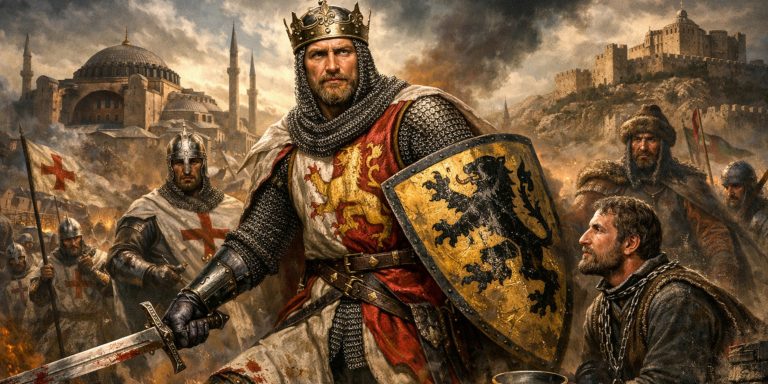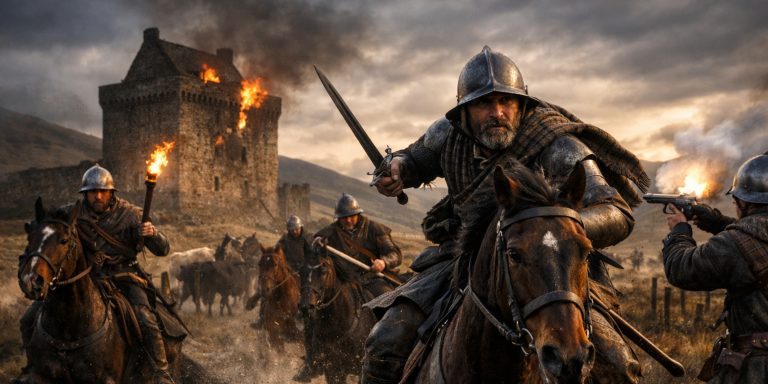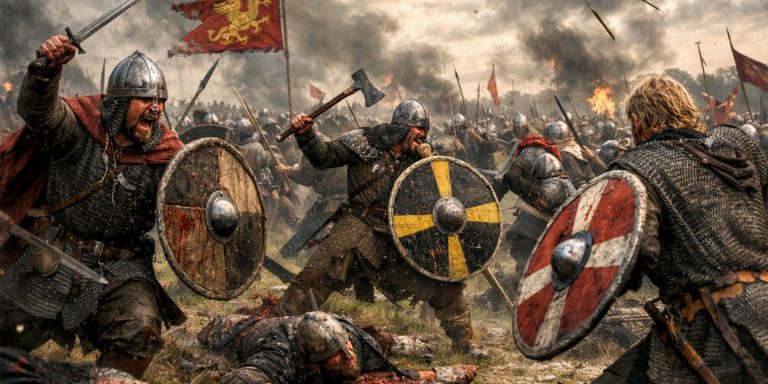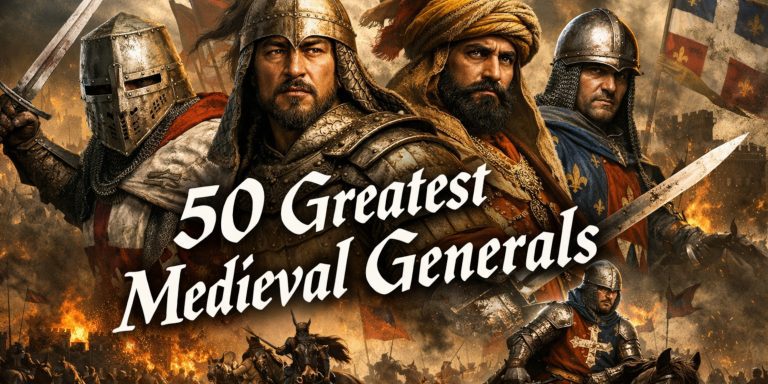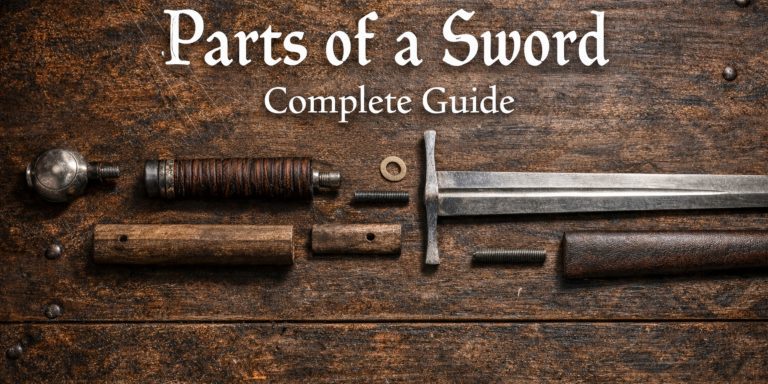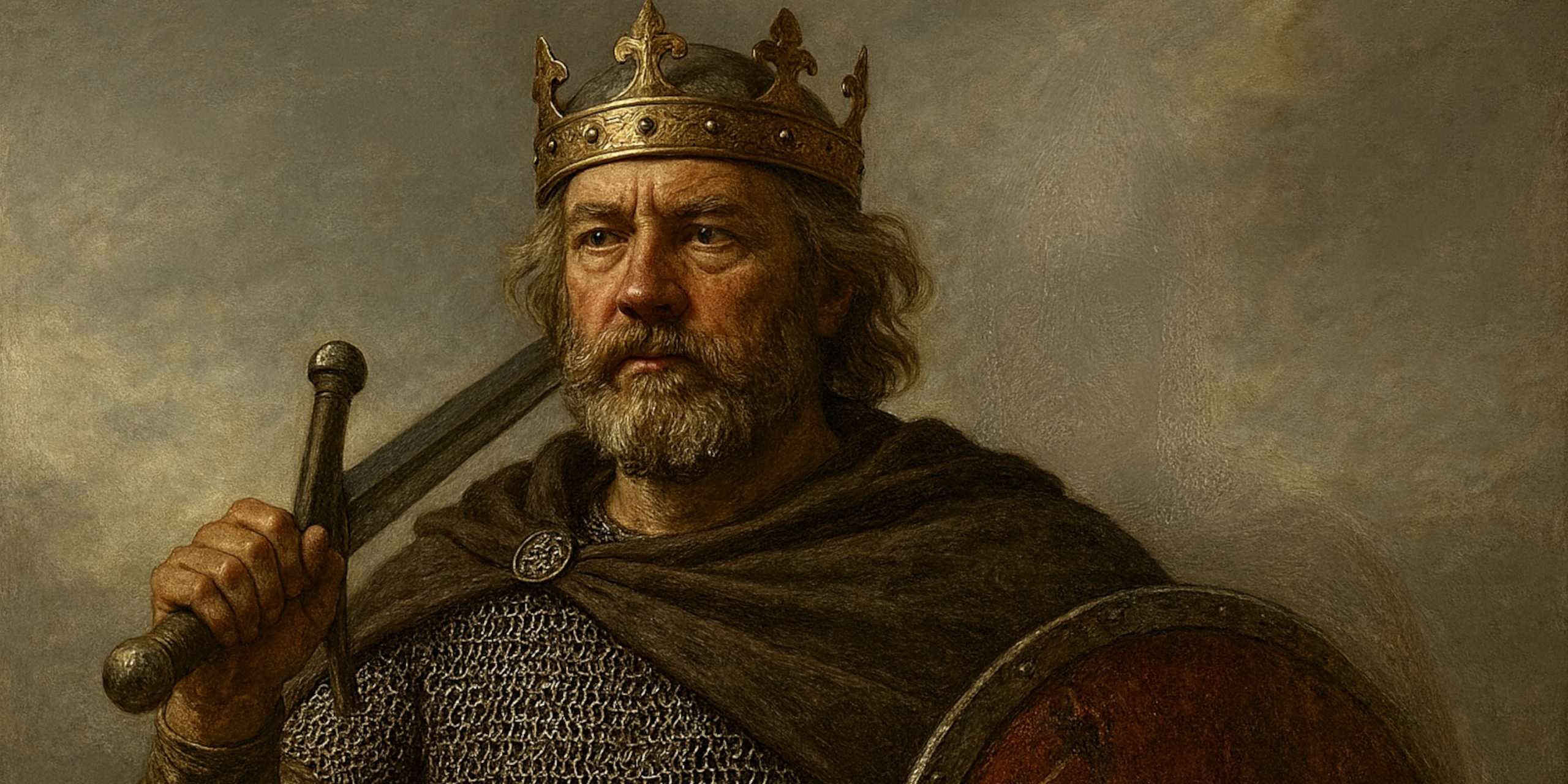
Egbert of Wessex, or Ecgberht as he was written in Old English, ruled from 802 to 839 and is often considered the first true King of all the English. That label might be a touch generous, but there is no denying his political genius and his military power. Egbert’s reign marked the transition of Wessex from a regional power into the dominant English kingdom. He was, in many ways, the grandfather of English unity.
When I look at Egbert’s career, what strikes me most is how methodical it was. His rise wasn’t built on charisma or romantic conquest but on calculated moves and ruthless persistence. Egbert was the first to understand that the heptarchy, those fractured Anglo-Saxon kingdoms, could be subdued not merely through war, but through careful diplomacy and controlled strength.
Arms and Armour
The military equipment of Egbert’s time reflects the shifting face of early medieval warfare. His warriors were still part of the classic Anglo-Saxon war culture, though by his reign it was starting to take on a more organised, proto-feudal character.
Weapons and Equipment of the Age:
- Swords: Pattern-welded double-edged blades, often decorated with inlays of silver or copper. The hilts were typically made of bone or iron, sometimes with ornate pommels.
- Spears: The most common weapon among the fyrd, or local levy. A spear was both a soldier’s tool and symbol of free status.
- Shields: Circular wooden shields covered in leather, sometimes reinforced with iron rims. Warriors often painted or carved symbols into them, perhaps tribal or religious marks.
- Helmets: Few survive, but likely akin to the Coppergate or Sutton Hoo styles, though plainer. Most were iron, with a nasal guard and cheek plates.
- Mail: Reserved for the elite. A hauberk of interlinked rings was a prized possession, worn by the king’s household guards.
Egbert himself, if we are to imagine him on campaign, would have been well-armoured compared to his troops. He would have carried a sword, possibly a finely forged Frankish blade, as continental trade and influence were strong during his reign.
Battles and Military Acumen
Egbert’s military career is one of steady consolidation rather than flamboyant heroics. His greatest victories were as much political as martial, yet they forever altered the map of early England.
Key Campaigns:
- Battle of Ellandun (825):
This was Egbert’s defining moment. The battle against Beornwulf of Mercia near modern Swindon broke Mercian supremacy and established Wessex as the dominant southern kingdom. It was a brutal affair, with Egbert’s disciplined fyrd crushing the Mercian ranks. Ellandun effectively ended two centuries of Mercian dominance. - Submission of Kent, Sussex, and Essex:
Following Ellandun, Egbert’s armies swept through the south-east, subduing rival kings. His treatment of these territories was shrewd, he installed his son Æthelwulf as sub-king, keeping them loyal through kinship rather than garrisons. - Campaigns in the West (Cornwall):
Egbert pushed deep into Dumnonian territory (modern Cornwall), fighting the last Celtic kings there. The defeat of the Cornish at Hingston Down around 838 secured Wessex’s western border and opened the region to Saxon settlement. - Relations with the Carolingians:
Egbert spent years in exile at Charlemagne’s court before becoming king, learning the mechanics of empire. His later campaigns show a clear understanding of continental models of overlordship. He sought tribute and oaths rather than endless war, a policy Alfred and Athelstan would later perfect.
Egbert was not a reckless conqueror. He was an administrator of conquest, ensuring that his victories translated into loyalty and structure. That restraint was his true military genius.
Where to See Artefacts from His Reign
The material remains from Egbert’s time are frustratingly scarce, yet a few remarkable finds help us visualise his world:
- British Museum, London:
- Early 9th-century Anglo-Saxon swords and spearheads, typical of those used under Egbert.
- Coinage attributed to Egbert’s reign, including silver pennies stamped with ECGBERHT REX, showing the beginnings of a unified monetary system.
- Winchester City Museum:
- Artefacts from Wessex’s royal capital, including domestic items and early Christian objects dating to Egbert’s period.
- Displays related to the early Wessex kingship and its religious centres.
- Exeter Museum:
- Finds from Devon and Cornwall, including inscribed stones marking the cultural clash between Saxon and Brittonic traditions.
To stand before Egbert’s coinage is to see the first whisper of a united English kingship, small silver discs that carried enormous political weight.
Latest Archaeology
Recent archaeological work has continued to shed light on Egbert’s world, particularly around Wessex’s political heartlands:
- Hamwic (modern Southampton): Excavations have revealed how this thriving port supported Egbert’s economy. Imported pottery, wine amphorae, and glassware show that Wessex was not a backwater but part of an active trade network.
- Winchester: Excavations near the Old Minster have unearthed fragments of high-status dwellings from the early 9th century, possibly linked to the royal household.
- Cornwall: Finds near Hingston Down, including weapon fragments and burial remains, may be associated with Egbert’s final campaigns against the Cornish kings.
- Metal-detecting finds: A growing number of silver pennies from Egbert’s reign are being discovered, helping historians trace the spread of royal authority and the economic reach of Wessex.
The archaeological record paints a picture of a society that was no longer tribal but administrative, increasingly literate, and deeply connected to continental Europe.
Personal Thoughts
When I reflect on Egbert, I see not a mythic warrior but a patient builder of power. His reign is often overshadowed by Alfred’s later brilliance, but without Egbert there would have been no Alfredian golden age. He gave Wessex a spine.
Egbert’s life also feels transitional, perched between the old heroic world of Beowulf and the pragmatic rule of written law. He was both warlord and statesman. There is a quiet dignity in that, even if his story lacks the drama of later kings.
To me, Egbert’s legacy is one of subtle transformation. He turned a kingdom of farmers and thegns into the seed of a nation. That, in any age, is no small achievement.
Watch the documentary:


